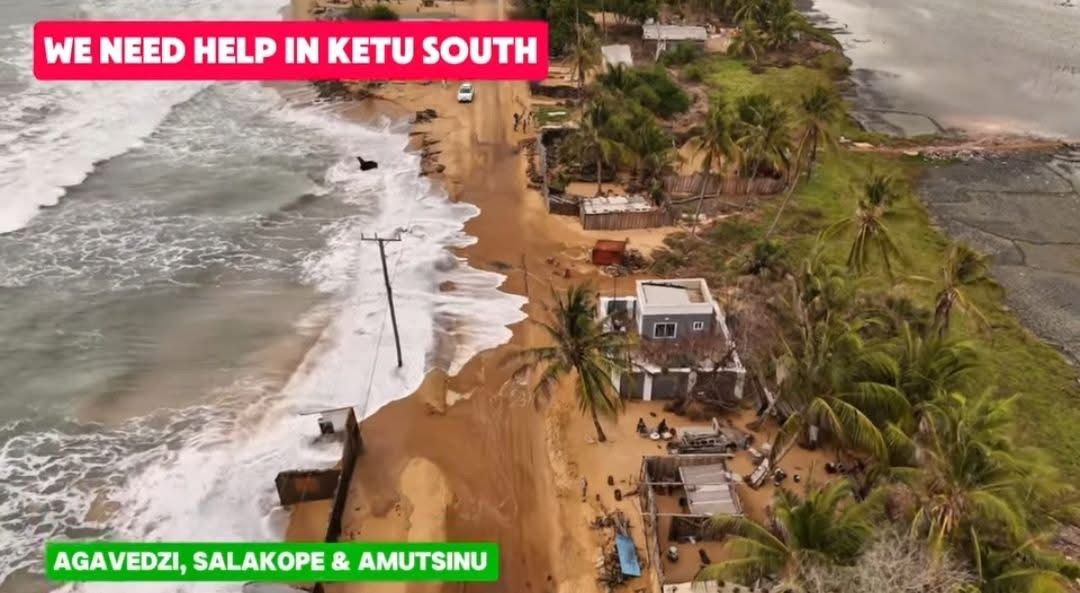This blog is managed by the content creator and not GhanaWeb, its affiliates, or employees. Advertising on this blog requires a minimum of GH₵50 a week. Contact the blog owner with any queries.
Prominent broadcast journalist and Atinka TV news anchor, Ebenezer ‘Kewaw’ Madugu, known on social media as LordKnowsMadugu, has issued a strong call to the Ministry of Tourism and the Volta Regional Minister, Hon. James Gunu, to address the long-standing Keta tidal wave crisis, warning that the much-promoted VisitVolta campaign risks becoming “meaningless” without immediate intervention.
Speaking during a live discussion with Bernard Lav, host of Atinka TV’s Morning Show, Madugu expressed frustration over the lack of progress since President John Dramani Mahama’s visit to Agavedzi on 6th March this year. Despite presidential assurances of swift action, Madugu stated that no tangible effort has been seen on the ground, and coastal communities continue to suffer.
“VisitVolta will be meaningless without attending to the Keta Tidal Wave challenge,” Madugu asserted. “For a very long time now, the people of and some communities in the Volta Region have not had their peace of mind because of the tidal wave challenge.”

He warned that if the tidal waves, which have consistently threatened Agavedzi and surrounding coastal towns, are not urgently mitigated, key parts of the region could be severely affected. He noted that the geographical vulnerability of the area means floodwaters could submerge major communities, wiping out both homes and tourist attractions.
“Reports say that when the water crosses the road you see between the sea and the other side of the community, it is likely to flow and cover a huge portion of the region,” Madugu emphasized. “And the Keta communities will be affected most. And you and I can never downplay the importance of Keta in the region’s tourism storytelling.”
The VisitVolta initiative, which was launched to promote the Volta Region as a prime tourism destination in Ghana, has drawn attention for its focus on natural beauty, cultural heritage, and eco-tourism. Madugu, however, insists that such campaigns ring hollow in the face of preventable climate and environmental disasters.
“Volta Region is the best place to go and relax. The oxygen is clean and everywhere is green. We love the place,” he said passionately. “Let me appeal to our leaders: Save Agavedzi now.”
The Keta tidal wave issue has been a recurring concern for decades, with periodic flooding displacing residents, damaging infrastructure, and threatening economic activities, including fishing and tourism. Experts and civil society groups have repeatedly called for a comprehensive coastal defense strategy to safeguard lives and livelihoods.
As calls mount for government accountability and swift action, Madugu’s comments have reignited public interest and scrutiny on the real cost of inaction in Ghana’s vulnerable coastal regions.
